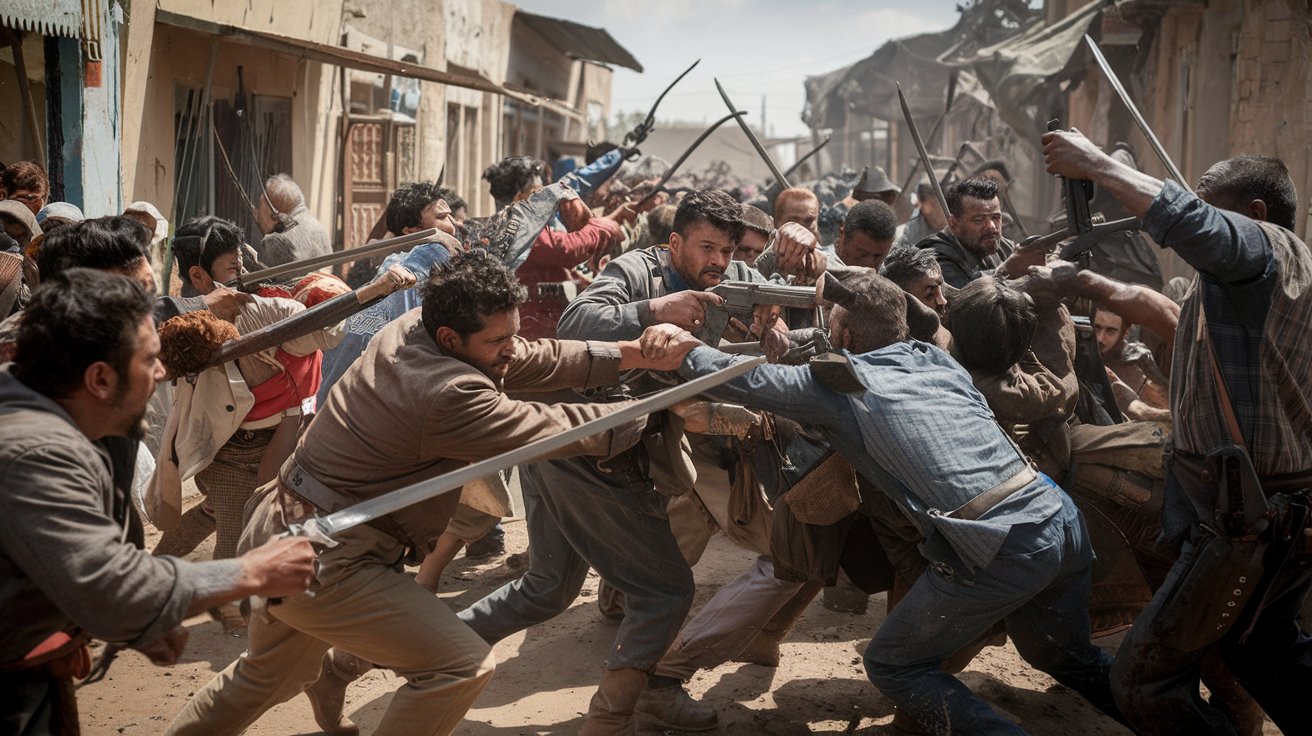
What was the Ra Kuti Rebellion? The Ra Kuti Rebellion was a significant uprising in ancient Egypt during the reign of Pharaoh Akhenaten. This revolt, led by a high-ranking official named Ra Kuti, aimed to challenge Akhenaten's radical religious reforms. Akhenaten had shifted Egypt's traditional polytheistic worship to focus solely on Aten, the sun disk. This drastic change upset many, especially the powerful priests of Amun. Ra Kuti, leveraging this discontent, rallied support from those who opposed the new religious order. The rebellion highlighted the tension between traditional beliefs and Akhenaten's monotheistic vision. Though ultimately unsuccessful, it underscored the deep-rooted resistance to Akhenaten's reforms.
Key Takeaways:
- The Ra Kuti Rebellion was a significant uprising led by the Bhil tribes against British colonial rule in late 19th century India, highlighting the impact of colonial policies on indigenous communities and inspiring movements for tribal rights and autonomy.
- Ra Kuti, a prominent Bhil chieftain, led the rebellion, using guerrilla warfare tactics to resist British suppression. His legacy lives on as a symbol of resistance and courage, inspiring future generations to stand up against oppression.
Ra Kuti Rebellion: A Glimpse into History
The Ra Kuti Rebellion, a significant event in Indian history, took place in the late 19th century. This uprising, led by the Bhil tribes, was a response to British colonial rule. Here are some fascinating facts about this historical event.
Origins of the Rebellion
Understanding the roots of the Ra Kuti Rebellion helps us grasp its significance.
- The Ra Kuti Rebellion began in 1898 in the Khandesh region of Maharashtra, India.
- The Bhil tribes, known for their warrior skills, spearheaded the uprising.
- British colonial policies, including heavy taxation and land reforms, fueled the discontent among the Bhils.
- The rebellion was named after its leader, Ra Kuti, a prominent Bhil chieftain.
Key Events
Several pivotal moments defined the course of the Ra Kuti Rebellion.
- In 1898, Ra Kuti and his followers attacked British outposts, marking the start of the rebellion.
- The Bhils used guerrilla warfare tactics, making it difficult for the British to suppress the uprising.
- The British responded by deploying additional troops to the region.
- Ra Kuti's forces managed to capture several British officials, creating a significant impact.
British Response
The British colonial administration took several measures to quell the rebellion.
- The British imposed martial law in the Khandesh region to control the situation.
- Rewards were offered for information leading to the capture of Ra Kuti and his associates.
- British forces conducted extensive search operations in the forests and hills where the Bhils were hiding.
- The British also sought to divide the Bhil tribes by offering incentives to those who surrendered.
Impact on the Bhil Community
The rebellion had lasting effects on the Bhil tribes and their way of life.
- The Bhils faced severe reprisals from the British, including mass arrests and executions.
- Many Bhil villages were destroyed during the conflict, leading to widespread displacement.
- The rebellion highlighted the Bhils' resistance to British rule and their desire for autonomy.
- Despite the suppression, the Bhils' spirit of resistance continued to inspire future generations.
Legacy of Ra Kuti
Ra Kuti's legacy lives on in the history and culture of the Bhil community.
- Ra Kuti is remembered as a hero and a symbol of resistance against colonial oppression.
- Stories and songs about Ra Kuti's bravery are still told among the Bhil tribes.
- The rebellion is commemorated in local festivals and cultural events.
- Ra Kuti's leadership and courage continue to inspire movements for tribal rights and autonomy in India.
Historical Significance
The Ra Kuti Rebellion holds an important place in the broader context of Indian history.
- The rebellion was one of many tribal uprisings against British rule in India.
- It highlighted the impact of colonial policies on indigenous communities.
- The Ra Kuti Rebellion contributed to the growing discontent that eventually led to India's independence movement.
- Historians study the rebellion to understand the dynamics of resistance and colonialism in India.
- The Ra Kuti Rebellion serves as a reminder of the resilience and courage of India's tribal communities in the face of oppression.
The Legacy of the Ra Kuti Rebellion
The Ra Kuti Rebellion left a lasting mark on history. This uprising, driven by the desire for freedom and justice, showcased the resilience of those who fought against oppression. The rebellion's leaders, with their courage and determination, inspired future generations to stand up for their rights.
Despite the challenges faced, the rebellion highlighted the power of unity and solidarity. The stories of bravery and sacrifice from this period continue to resonate, reminding us of the importance of fighting for what is right.
Understanding the Ra Kuti Rebellion helps us appreciate the struggles and triumphs of those who came before us. It serves as a powerful reminder that the quest for freedom and equality is a timeless endeavor. The legacy of this rebellion lives on, inspiring us to continue striving for a better, more just world.
Frequently Asked Questions
Was this page helpful?
Our commitment to delivering trustworthy and engaging content is at the heart of what we do. Each fact on our site is contributed by real users like you, bringing a wealth of diverse insights and information. To ensure the highest standards of accuracy and reliability, our dedicated editors meticulously review each submission. This process guarantees that the facts we share are not only fascinating but also credible. Trust in our commitment to quality and authenticity as you explore and learn with us.
